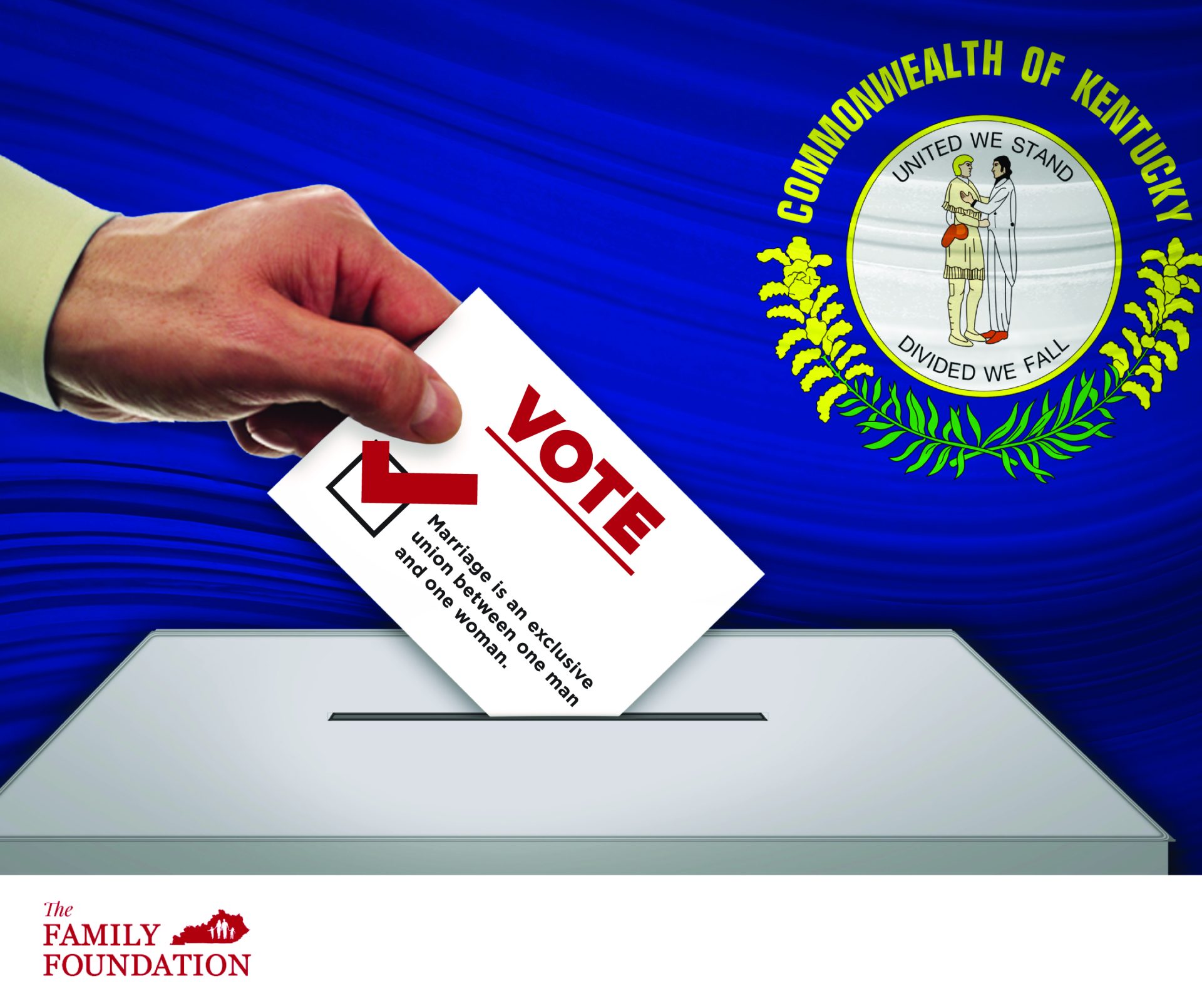If we wanted to give an example of a court decision that brazenly ignored precedent, contorted the written law, and that opposed common sense, we might easily cite the Obergefell decision—the decision that “legalized” samesex marriage nationwide. It was decided ten years ago on June 26, 2015.
The decision invalidated the marriage laws passed by 38 states, including a constitutional amendment passed by 75% of Kentucky voters several years earlier, which defined marriage as an exclusive union between one man and one woman.
These state laws, which simply codified the truth of marriage understood by everyone, male and female, child and adult, whites and people of color, upper and lower classes, straight and gay, for all of recorded history until about 25 or 30 years ago, was effectively invalidated by one unelected judge: U.S. Supreme Court Justice Anthony Kennedy, who wrote the majority opinion.
Kennedy was the swing vote, but, of course, four others voted with him. One of the justices who did not vote to redefine the most foundational institutional of human society was Antonin Scalia. As was his practice before his death in 2016, he was able to beautifully capture the absurdity of liberal jurisprudence as applied, this time, to marriage:
“The five Justices who compose today’s majority are entirely comfortable concluding that every State violated the Constitution for all of the 135 years between the Fourteenth Amendment’s ratification and Massachusetts’ permitting of same-sex marriages in 2003. They have discovered in the Fourteenth Amendment a “fundamental right” overlooked by every person alive at the time of ratification, and almost everyone else in the time since. They see what lesser legal minds—minds like Thomas Cooley, John Marshall Harlan, Oliver Wendell Holmes, Jr., Learned Hand, Louis Brandeis, William Howard Taft, Benjamin Cardozo, Hugo Black, Felix Frankfurter, Robert Jackson, and Henry Friendly—could not.”
To say that Obergefell was an assault on common sense and the democratic process is an understatement. And it wasn’t only conservative minds that were taken aback by the faulty reasoning in the decision. “Outside of academic specialties,” said Brian Beutler, shortly after the decision in the liberal New Republic, “historic Supreme Court decisions aren’t generally taught as logical treatises, but as watershed moments, which is great news for Kennedy because his opinion in Obergefell is, logically speaking, kind of a disaster.”
Disaster indeed. The Obergefell decision was one of a number of decisions made during the era of liberal activist Court majorities in which democratically decided laws were overturned. In many of them some law, stated clearly and definitively and passed by a democratically elected-legislature, was overruled by unelected judges on the basis of some unwritten and vague principle which we all were somehow expected to acknowledge, even though it’s only warrant was that some other unelected judge had said it.
In many ways, Obergefell was like the lawless Roe v. Wade decision: it defied reality and precedent, it invoked esoteric judicial principles no one could actually justify, and it conveniently comported with the majority judges’ own political predilections.
The ultimate solution to the Obergefell decision is the same as that for Roe v. Wade: A Court willing to revisit and reverse its own deeply-flawed and anti-democratic rulings. That would, of course, require someone to challenge the decision. But with an increasingly conservative electorate recoiling from the insanity of the gender revolutionaries, such an effort is not unimaginable.
The same-sex marriage issue, like the abortion issue, should not be decided by judicial oracles whose reasoning is more akin to some kind of magical incantation than it is to truth and logic—those whom Scalia once called “the Black-Robed Supremacy.” Justice Clarence Thomas also eloquently noted in his dissent how Obergefell “distorted” the Constitution:
“The Court’s decision today is at odds not only with the Constitution, but with the principles upon which our Nation was built. Since well before 1787, liberty has been understood as freedom from government action, not entitlement to government benefits. The Framers created our Constitution to preserve that understanding of liberty. Yet the majority invokes our Constitution in the name of a “liberty” that the Framers would not have recognized, to the detriment of the liberty they sought to protect. Along the way, it rejects the idea—captured in our Declaration of Independence—that human dignity is innate and suggests instead that it comes from the Government. This distortion of our Constitution not only ignores the text, it inverts the relationship between the individual and the state in our Republic.”
The U. S. Constitution says nothing about a right to same-sex marriage, but it does say that the people have the right to rule themselves through their representative institutions, the institutions through which the laws the Court overturned in Obergefell were made. Judges have their place, a place alongside, not in opposition, to the people.
Click here to view and download the PDF of the print version of the Citizen paper.

